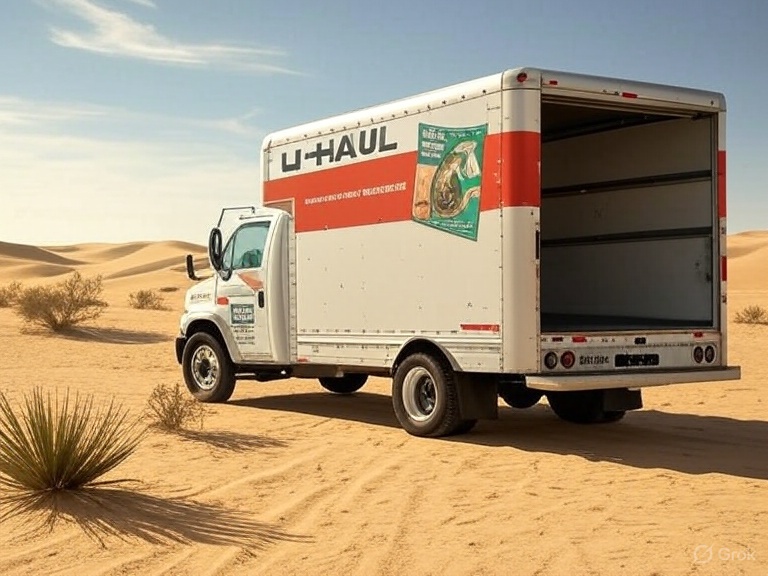What U-Haul Data From Nevada Tells Us About Smart Government
The Big Picture
Nevada has always been a place where people chase the American Dream. But new data shows the Silver State hit a bump in the road last year. For the first time in years, slightly more people left Nevada than moved in.
Nevada dropped from 11th to 35th in U-Haul’s Growth Index, which tracks where Americans are moving. “U-Haul customers coming to Nevada accounted for 49.7 percent of all one-way traffic in and out of the state (50.3 percent departures) last year.” That’s a small difference, but it breaks a winning streak.
This shift offers important lessons about what attracts families to states and what policies work best.
What The Numbers Tell Us
The facts show a clear pattern across America. Nevada had been a net-gain state (with more U-Haul arrivals than departures) in four of the previous five years. But U-Haul arrivals into Nevada fell more than 3 percent in 2024 while departures stayed the same.
Meanwhile, states with business-friendly policies are still winning big. South Carolina climbed to the top spot for the first time. Texas, North Carolina, and Florida rounded out the top five – all states known for lower taxes and fewer regulations.
The contrast is striking. States that embrace free markets keep attracting new residents. States that don’t are losing ground.
Why This Matters to Conservatives
Nevada’s story shows how important good policies are for attracting families and businesses. The state faces some real challenges that highlight key conservative principles.
Nevada now has an unemployment rate of 5.4%, tied with California for highest in the nation. While the state’s economy has always had ups and downs due to tourism, high unemployment makes it harder for working families to get ahead.
Housing costs have also been a factor. Home prices remain at record highs, though rental rates have dropped substantially since last year. When government doesn’t allow enough housing to be built, ordinary families get priced out.
Nevada has always had a complex relationship with federal policy, especially on immigration. Nearly one-fifth of the state’s residents were born in a foreign country. This creates both opportunities and challenges for local communities trying to provide services and maintain quality of life.
What Others Are Saying
Supporters of Nevada’s current direction point to the state’s long history of attracting new residents. They argue the 2024 numbers reflect temporary national economic trends rather than state policy problems.
Labor unions and some Democratic leaders say Nevada needs more government investment in education and infrastructure. They believe public spending, not tax cuts, will solve the state’s challenges.
Some business groups argue Nevada’s tourism-based economy just needs time to recover fully from the pandemic. They point to the state’s entertainment and hospitality industries as permanent advantages.
Looking Forward
Nevada has some natural advantages that won’t go away. The state has no personal income tax, which appeals to many Americans. Its location between California and the growing Southwest gives it strategic value.
A recent report from UNLV’s Lee Business School found economic uncertainty rising in the second quarter of 2025. But uncertainty can create opportunities for states that make smart choices.
Nevada’s political structure actually reflects conservative principles in many ways. The state is one of only four that holds legislative sessions every two years instead of annually. This limits how often politicians can pass new laws and regulations.
The state’s constitution also limits legislative pay and session length. Nevada’s political culture has long embraced individualism and opposed big government, big labor, and big business.
What Conservatives Can Learn
First, policies matter for attracting families and businesses. States that keep taxes low and regulations reasonable tend to win the competition for new residents.
Second, economic diversity helps. States that rely too heavily on one industry face bigger swings when times get tough. Encouraging multiple types of businesses creates more stability.
Third, housing policy affects everything else. When states make it easy to build homes, families can afford to live there. When they don’t, people move somewhere cheaper.
Fourth, federal and state cooperation works better than conflict. States do best when they work with federal law rather than fighting it.
Nevada still has many advantages that could help it bounce back. The question is whether state leaders will embrace the limited government principles that made Nevada attractive in the first place.
The families making moving decisions care about jobs, housing costs, and quality of life. States that deliver on these basics through smart, limited government will keep winning the competition for America’s best and brightest.
This article was written with the assistance of AI. Please verify information and consult additional sources as needed.



